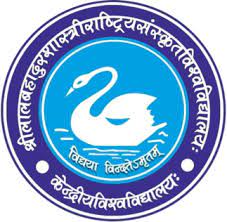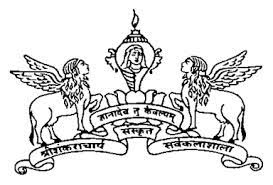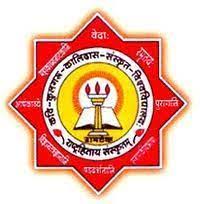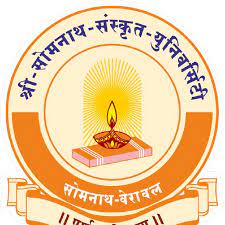In the field of Indian Philosophy, the Ph.D. in Naval Vyakarana course is an advanced level of study. Students who have already obtained a Master's degree will be eligible for the Ph.D. program. For certain Ph.D. subjects, an M.Phil. is required. The M.Phil. applicant does not have to take a placement test and the course work. Upon graduation, the student will be considered to have accepted the guidelines of UGC.
The Department of Vyakarana offers two streams: Prachin and Navya Vyakarana. The Prachin Vyakarana stream focuses on every aspect of the subject, including its justifications. The Navya Vyakarana stream focuses on the teaching of the Mahabhashya by Patanjali. It consists of two major branches: the Padchheda stream and the Anuvritti stream.
The Navya Vyakarana stream focuses on Sanskrit grammar. Both streams are offered at the Ph.D. level, and both are part of the Department of Vyakarana. The Prachin stream focuses on every aspect of the subject, including justifications. The Navya stream focuses on the teaching of the Mahabhashya of Patanjali.
In order to qualify for the degree, a student must have completed the B.A. in the subject he wants to specialize in. The M.Phil. program focuses on grammar, so the candidates must have some background in the subject. In addition to the B.A., the M.Phil., and Ph.D. may take different subjects. The M.Phil. in Sanskrit can also be combined with a B.A. in Sanskrit. The Ph.D. candidate will be able to choose from among the three.
Ph.D. in Navya Vyakarana Eligibility
Candidates who want to take admission in Ph.D. must have a post-graduate degree in Navya Vyakarana and its relevant discipline with at least 55% marks from a recognized university and must have passed the national level entrance examination or university level entrance examination. National level entrance exams like UGC NET / UGC CSIR NET / GATE / SLET or University entrance exams consist of written tests and personal interviews.
The Benefits of Ph.D. in Navya Vyakarana
The Department of Navya Vyakarana offers two streams of study: Prachin Vyakarana and Naval Vyakarana. The first stream is the introductory text, which deals with the sixteen parathas and their justifications. The second stream, called Naval or Vedic, focuses on teaching the Mahabhashya of Patanjali.
There are many benefits of pursuing a Ph.D. in Navya Vyakirana. The research you undertake is supported by a prestigious university. NISER faculty receive the usual Central Government Employee allowances, which are approximately Rs 10,000-30,000 per year, and are fully entitled to attend and present research papers. Moreover, the research-oriented program at NISER provides support to faculty in preparing research papers and publishing them.
You'll receive the same fringe benefits as a Central Government Employee (Rs. 10,000-30,000 per year depending on the scale of pay). In addition, you'll receive a book grant of Rs four thousand rupees per year. You'll also receive training in research methodology. And you'll have access to the Department's libraries. You'll have access to the latest research techniques.
A Ph.D. is an important milestone for a scholar, and an advanced degree can provide the highest level of expertise. A doctoral degree is an advanced degree and can help you get ahead in your career. A Ph.D. in Navya Vyakara has a number of benefits. The knowledge and skills gained in this program will benefit you for years to come. You'll be well-prepared to apply for a job in the field of Indian culture.
The Career and Job Opportunities of Ph.D. in Navya Vyakarania
Applicants pursuing a Ph.D. in Navya Vyakarania must have completed a Masters's Degree or the equivalent. A Masters's in Philosophy is required for certain Ph.D. subjects. Candidates who already have an M.Phil. will not have to take a placement test or any course work before starting the doctoral program. They will also be presumed to have accepted the UGC guidelines.
The Ph.D. in Sanskrit has a broad scope and may lead to a variety of career opportunities. Graduates may become historians, archaeologists, content editors, or letter translators, among others. Other potential careers in Sanskrit include teaching, research, and publishing. As a result, a Ph.D. in Sanskrit may prepare you for a diverse array of professions.
Once you've completed your Ph.D., you can choose a field of study to further your career. Besides teaching, you can also work as a writer or a poet. Depending on your interest, you might pursue a research career or a teaching career. In addition to teaching, a Ph.D. in Sanskrit can lead to a variety of other positions, including publishing, consulting, or researching.
A Ph.D. in Sanskrit is a three-year doctorate course that focuses on research-level learning of Sanskrit literature and language. The program is focused on developing linguistic and literary skills for future employment. If you have a Master's degree in Sanskrit, you can pursue a Ph.D. in Sanskrit. If you have a Master's or MPhil in the language, you can apply for this degree.
The Future Scope of Ph.D. in Navya Vyakarana
In India, the program consists of two parts. The first part is the master's level. This degree is offered at colleges and universities. The other part is the doctoral level. The doctoral program takes about five years. The second part is the dissertation. Both parts are similar in nature but have some differences. The dissertation must be at least six pages, and it must be accompanied by original documents.
To qualify for a Ph.D. in this discipline, you should have completed a B.A. in the subject. After passing the first part, you should complete a thesis. The dissertation is the core part of the program. The thesis is the main portion of the program. This document will explain the research work of the candidate. A successful defense of the thesis will grant you the Ph.D. degree. Then, you will need to submit your work to a high-impact journal.
To become a doctoral candidate, you must complete a three-year course. The syllabus includes courses in Sanskrit, philosophy, and science. Applicants must also have completed a Master's degree and be fluent in Sanskrit. During the third year of the program, you must pass the Vedavibhushan Examination conducted by Maharishi Sandipani Vedavividya Pratishthanam. The exam is optional for Shastri-level applicants.
Ph.D. Research Programme duration
The Ph.D. in Navya Vyakarana course is a minimum of 3 years and a maximum of 5 in duration. This depends on the university offering the course.
Fees for research program for Navya Vyakarana
The average fee for Ph.D. in Navya Vyakarana degree is between INR 50000 and INR 500000.
 5 Years
5 Years
 PhD
PhD
 Research
Research
















 back
back